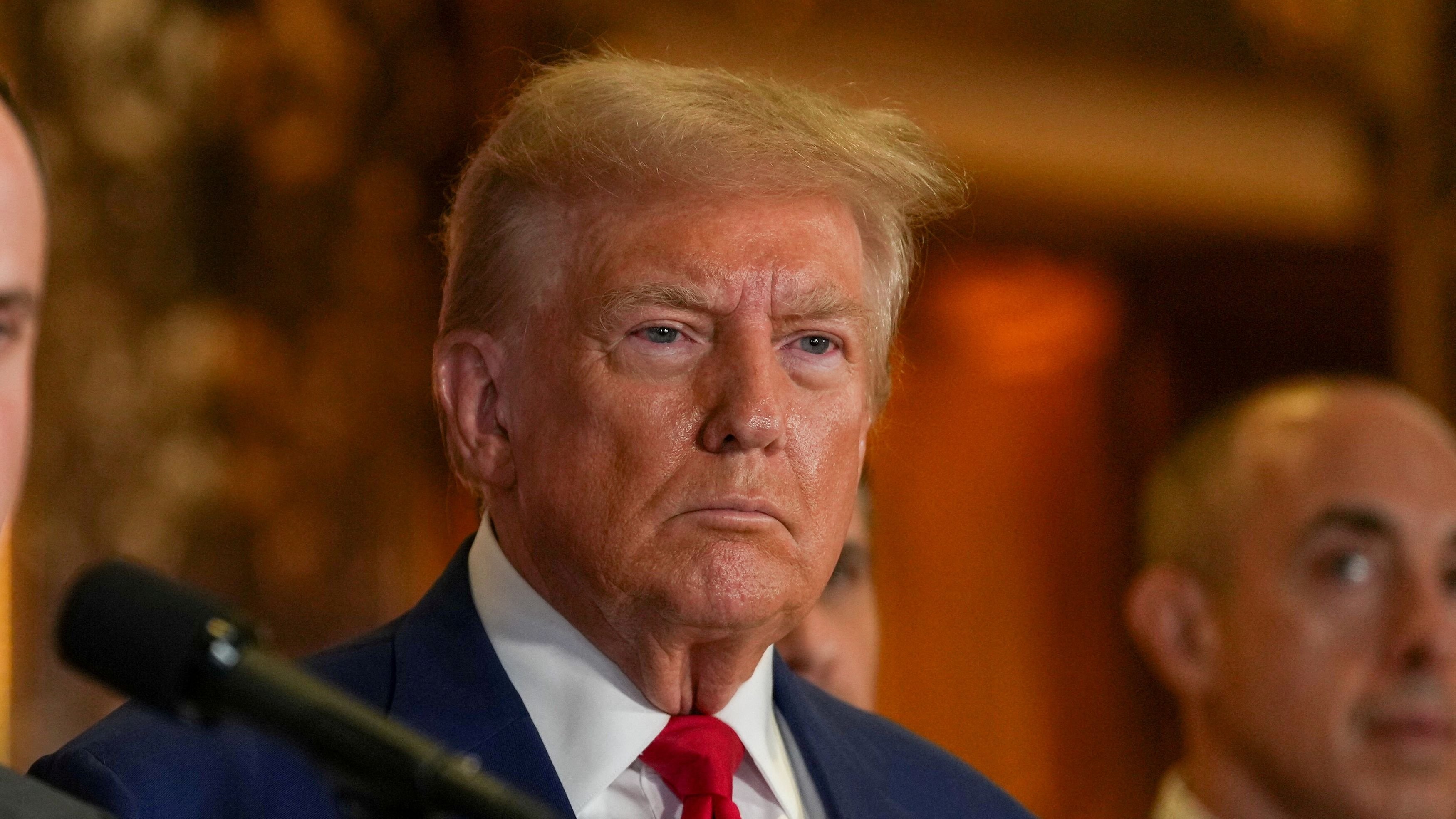
Donald Trump
Credit: Reuters Photo
A key factor that contributed to Donald Trump’s emphatic win in the US presidential election was voters’ discontent over high prices of everyday goods and houses, compared to what these were four years ago. Though inflation has come down from over 10 per cent in the aftermath of Covid to around 2 per cent (the target rate), the price level is much higher than in the earlier Trump presidency due to the cumulative effect of high inflation over several years. Trump supporters believe that the president-elect can bring down prices and create more jobs for Americans.
But Trump’s self-declared policies, if implemented, would push inflation up very significantly. Trump wants to impose flat 60 per cent tariffs on all imports from China, 100 per cent tariffs on Chinese cars, and 10-20 per cent uniform tariffs on imports from all other countries. These would surely raise prices in the US, hurting US consumers and benefiting US producers of import-competing goods. However, all US producers would not benefit. The cost of production of US producers using imported (especially Chinese) materials/components will go up, leading to higher prices and reduced sales. The biggest problem would be for US producers producing for the competitive export market where they cannot raise prices while their cost of production goes up. This would reduce exports and cause consequent job loss in US export industries. So, even if jobs are created in US import-competing firms, the net job creation would be correspondingly less.
In addition, the proposed mass deportation of “illegal” immigrants who mostly work in agriculture and construction would cause labour shortage and hence, a rise
in wages and prices of food and houses.
Higher prices, along with proposed expenditure cuts by the US government, would particularly hurt low-income groups that would not benefit from tax cuts but would lose to the extent the cuts in government expenditure fall on social security and health benefits. Oil prices would fall as Trump would go for more drilling of fossil fuels, without caring for the climate impact.
Risks of retaliation
Not only China but also ‘friendly’ countries facing higher tariffs are most likely to retaliate by imposing matching tariffs on imports from the US. This means reduced US exports, with a negative impact on US trade balance and US jobs. Trump hopes to cut the trade deficit by imposing import duties. But economic theory tells us that a country’s overall trade deficit reflects total expenditure outstripping income (or value of domestic production) which spills over in the form of more goods coming in (imports) than going out (exports). Unless the US cuts this excess expenditure, the overall trade deficit would remain the same. Higher differential tariffs on Chinese goods would mean less imports from China but more imports from other countries like Vietnam, especially as Chinese factories and investment would move to such countries to get easier access to the US market.
Even US factories, to the extent China imposes retaliatory tariffs on US goods, would like to shift to other countries to get access to the Chinese market by changing their made-in-US label. Again, US workers would lose jobs. If the US, by cutting expenditure, can reduce its overall trade deficit, it would strengthen the US Dollar by lowering the excess supply of US dollars in the market. But a stronger dollar would reduce the international competitiveness of US goods and hence, exports. Thus, the net impact on US trade deficit reduction would be less due to the exchange rate effect.
Another big challenge comes from the interest rate front. Trump is highly critical of the Fed raising interest rates to fight inflation. Trump’s tariff and immigration policy is sure to raise inflation. But if Trump still insists on reducing interest rates to benefit his rich industrialist friends and the housing sector (where he has business interests), the standard monetary policy tool to combat inflation would not be available. Trump is against Fed independence and may pressurise the Fed to lower interest rates.
Some of Trump’s proposed policies may not materialise. The mass deportation of undocumented immigrants spread across the country will be difficult to implement. Further, the government’s economic policies are likely to be influenced by the business interests of Trump’s rich donors, Elon Musk in particular. For example, if China retaliates by denying access to the critical materials for making batteries (which China controls to a large extent) for EVs (Elon Musk’s major business), Trump may very well go for ‘deals’ with the Chinese (and other trading partners) in selective cases.
(The writer is a former Professor of Economics, IIM Calcutta, and Cornell University, US)